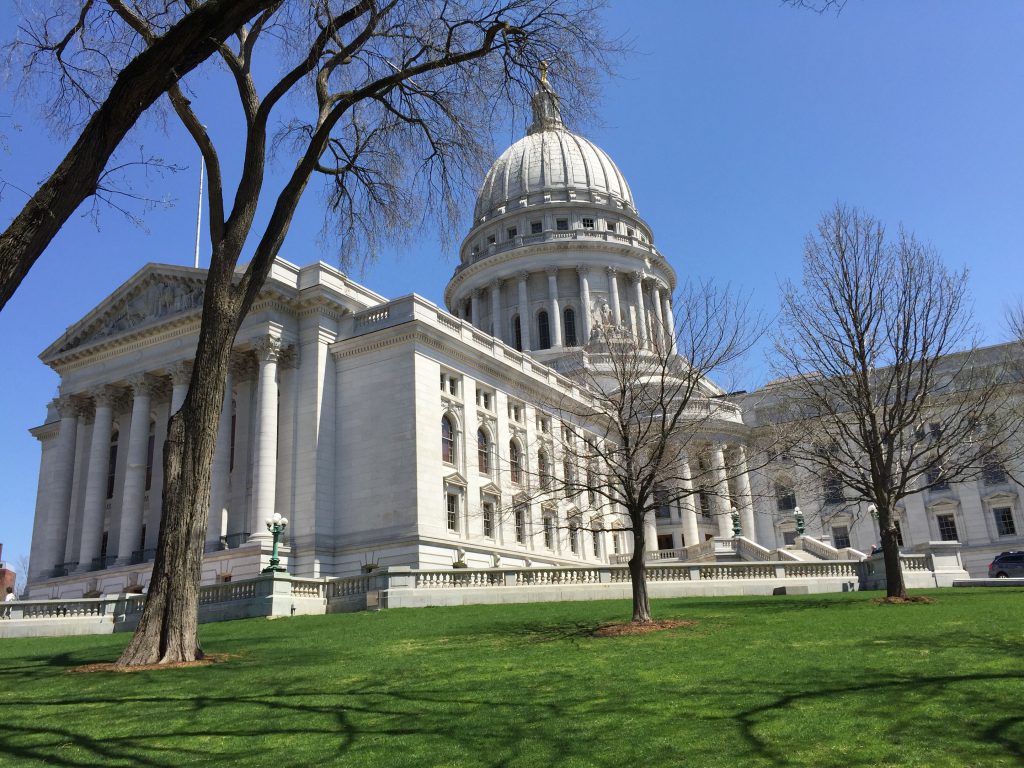What Legislature Didn’t Do About Pandemic
A number of good measures passed. But many important proposals were killed.
The COVID-19 public health emergency has forced us to quickly adapt and adjust our daily routines for this unprecedented time. Like so many families in rural Wisconsin, my bandwidth isn’t capable of allowing me to always work from home. So, last week from a small room on the UW-Eau Claire campus, I joined my senate colleagues through my computer screen for a virtual Senate Floor Session.
During Senate Session, I voted in support of the COVID-19 Response bill, a legislative package to support Wisconsin during this challenging time. Immediately after passing this bill, Governor Tony Evers signed the bipartisan bill into law. I’m proud to have voted for this bill; however, I know there’s more work to do to support Wisconsin families, businesses, farmers and medical professionals.
There are a number of measures included in the bill to help Wisconsin residents. The COVID-19 Response bill:
- Suspends the one-week waiting period for a claimant to receive unemployment insurance benefits, which leverages an additional $9 million from the federal government for Wisconsin workers.
- Makes changes to the state’s Medicaid regulations so that Wisconsin could be eligible for additional Medicaid funding, amounting to approximately $150 million for the first quarter of the year.
- Allows Wisconsin Retirement System participants to be re-hired for critical positions during the public health emergency while receiving their annuity.
- Allows pharmacists to extend certain prescriptions up to a 30-day supply during the pandemic.
- Requires insurance plans to cover the costs of COVID-19 testing.
- Prohibits an insurer or self-insured health plan from denying or cancelling health coverage based on a current, past or suspected diagnoses of COVID-19.
- Prevents surprise medical billing during public health emergencies.
These are important measures. However, there were key parts from Governor Evers’ proposal that were missing from the legislative proposal, introduced by Republicans, that would do more to help Wisconsinites impacted by COVID-19. The Legislature must meet again and vote to:
- Provide hazard pay or workers compensation for ALL frontline and critical workers who are risking their lives going to work every day.
- Provide additional support for local governments that are currently on the frontline working with their communities to address their unique situation in this pandemic.
- Further invest in Wisconsin’ small businesses and farmers who are struggling to make ends meet.
- Offer additional resources for public health officials and enhance the ability of state and local public health officials in their effort to flatten the curve.
- Make telehealth more available to patients with disrupted care.
- Support hospitals, nursing homes and long-term care facilities that are working hard to increase the capacity of our healthcare system.
- Provide relief for families in need of assistance with basic needs like food security or emergency assistance with housing or utility payments.
During Senate Session, I joined my Democratic colleagues in introducing three amendments to fill gaps where the legislative proposal fell short. One amendment would have included the aforementioned relief proposals to provide greater support to front-line workers, business owners, public health professionals and Wisconsin families. The other amendments would move future elections to a mail-in process, ensure Wisconsin residents can vote safely in future elections, and extend relief efforts to any future declared public emergencies. Ultimately, Republicans rejected all three amendments; therefore they weren’t included in the bill signed into law by Governor Evers.
Last week, Governor Evers also extended the “Safer at Home” plan. This is a challenging time for us all, but the easing of restrictions indicates that it is working and we are moving in the right direction. Getting the economy working again is our focus, but COVID-19 is far too contagious to just lift the Safer at Home Order – we must do it gradually to limit the strain on our economy and health care system.
I want to thank the front-line workers, medical professionals and all the people helping our communities during this crisis. Thank you for doing your part by staying home. Our work is not done, not by a long shot. The “Safer at Home” plan is working to keep more Wisconsinites safe. As long as we follow social distancing practices, we’re doing what we can to save lives. Keep it up.
Wisconsin State Senator Jeff Smith represents Wisconsin’s 31st Senate District.
If you think stories like this are important, become a member of Urban Milwaukee and help support real, independent journalism. Plus you get some cool added benefits.
More about the Coronavirus Pandemic
- Governors Tony Evers, JB Pritzker, Tim Walz, and Gretchen Whitmer Issue a Joint Statement Concerning Reports that Donald Trump Gave Russian Dictator Putin American COVID-19 Supplies - Gov. Tony Evers - Oct 11th, 2024
- MHD Release: Milwaukee Health Department Launches COVID-19 Wastewater Testing Dashboard - City of Milwaukee Health Department - Jan 23rd, 2024
- Milwaukee County Announces New Policies Related to COVID-19 Pandemic - David Crowley - May 9th, 2023
- DHS Details End of Emergency COVID-19 Response - Wisconsin Department of Health Services - Apr 26th, 2023
- Milwaukee Health Department Announces Upcoming Changes to COVID-19 Services - City of Milwaukee Health Department - Mar 17th, 2023
- Fitzgerald Applauds Passage of COVID-19 Origin Act - U.S. Rep. Scott Fitzgerald - Mar 10th, 2023
- DHS Expands Free COVID-19 Testing Program - Wisconsin Department of Health Services - Feb 10th, 2023
- MKE County: COVID-19 Hospitalizations Rising - Graham Kilmer - Jan 16th, 2023
- Not Enough Getting Bivalent Booster Shots, State Health Officials Warn - Gaby Vinick - Dec 26th, 2022
- Nearly All Wisconsinites Age 6 Months and Older Now Eligible for Updated COVID-19 Vaccine - Wisconsin Department of Health Services - Dec 15th, 2022
Read more about Coronavirus Pandemic here






















